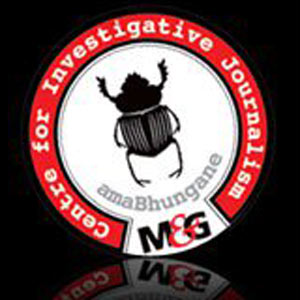Robert 'Rocks' Dlamini disappeared after he went to druglord Vijay Goswami's associate
Sources close to him said he was planning to return to South Africa to reclaim property he acquired before he left the country in 1995.
Goswami (51) was released on parole from the Dubai central jail last November, 16 years after he was sentenced to life imprisonment for smuggling 843kg of methaqualone (mandrax) and establishing two factories in Dubai to make the drug.
He was deported to India on his release. The Mail & Guardian was unable to track him down this week.
He first came to South Africa in 1994, after being deported from Zambia for suspected drug trafficking. He spent the next three years building contacts with the country's new political and social elite. He also allegedly expanded his narcotics retail operation to include the manufacture of mandrax.
Goswami is described in a confidential 1999 report by a South African intelligence agency as "a well-known international drug lord".
He acquired property, luxury cars and shares in companies allegedly linked to money laundering.
A Sandton businessman
Goswami, said to have counted Khoza among his close associates, suddenly left South Africa in 1995 after the disappearance and suspected murder of Soweto socialite and alleged drug dealer Robert "Rocks" Dlamini.
The M&G reported in 2003 that Dlamini was part of a consortium of Soweto drug dealers who, according to several accounts, placed an order for R1.5-million worth of mandrax tablets from India. He and two associates travelled to Mumbai, only to be told that contacts in South Africa would supply the consignment.
Back in South Africa, they allegedly started knocking at the doors of Goswami and Khoza. On April 6 1995, the day of his disappearance, he told his family that he was meeting Khoza to collect a debt.
In an interview with the Sunday Times a year after Dlamini's disappearance, Khoza reportedly confirmed knowing Dlamini and that "a Sandton businessman" – an apparent reference to Goswami – had asked him to deliver money to the Sowetan socialite. But he denied knowing at the time that it was related to a drug deal.
Dlamini's body was never found and no one was charged with his disappearance, despite a police offer of R250 000 for information.
In a letter to then-president Nelson Mandela in December 1995, Dlamini's nephew, Doctor Ruoele, decried the quality of the police investigation. He wrote: "I am bitter, frustrated, angry and I also feel very much betrayed into believing that my voice [would be] heard after our new government [was elected]… My uncle … was kidnapped … after he told the whole family that, I quote, 'I want you to know that Irvin Khoza of Orlando Pirates owes me R1.5-million.'"
Dubai's most dangerous criminals
The M&G made numerous attempts over two weeks to contact Khoza for comment about his association with Goswami and Dlamini. His phone remained on voice mail.
In Dubai, Goswami linked up with senior government officials and set up a narcotics manufacturing plant. A joint sting operation in Mozambique and South Africa led to the uncovering of the factory.
In addition to the life sentence, he and four other Indians were each fined 200 000 dhiram (about R480 000 in current values). Described as Dubai's most dangerous criminals, the five won early release for good conduct.
A life sentence in Dubai is in effect 25 years, but prisoners can apply for early release on various grounds. Apart from good conduct, these include learning to recite passages from the Qu'ran or converting to Islam. To strengthen his clemency appeal, Goswami converted to Islam and was married according to Islamic rites while incarcerated.
Sources imprisoned with Goswami told the M&G that he had been very well treated while in jail. "He had access to cellphones and continued to conduct his business from his cell," said one.
According to Gulf News, the prosecution tried to block the convicts' plea for clemency, describing them as "a serious menace and an imminent danger to society". It was overruled by the judge, on condition that Goswani was immediately deported.
* Got a tip-off for us about this story? Email [email protected]

The M&G Centre for Investigative Journalism (amaBhungane) produced this story. All views are ours. See www.amabhungane.co.za for our stories, activities and funding sources.